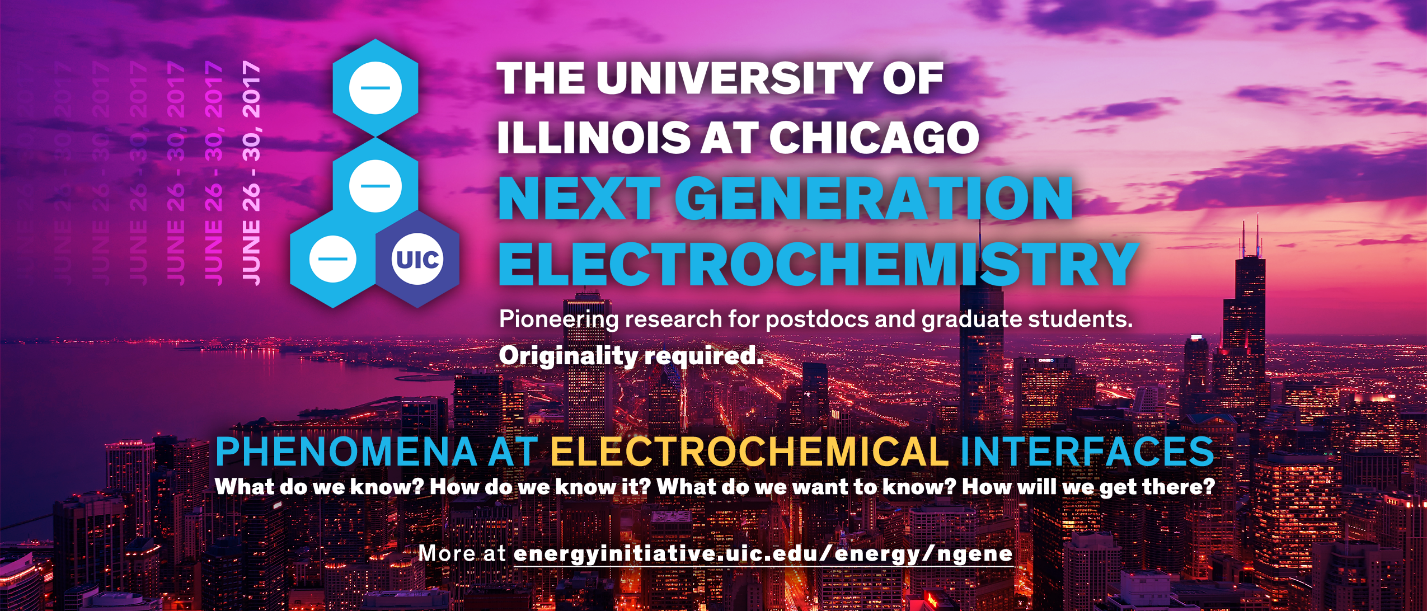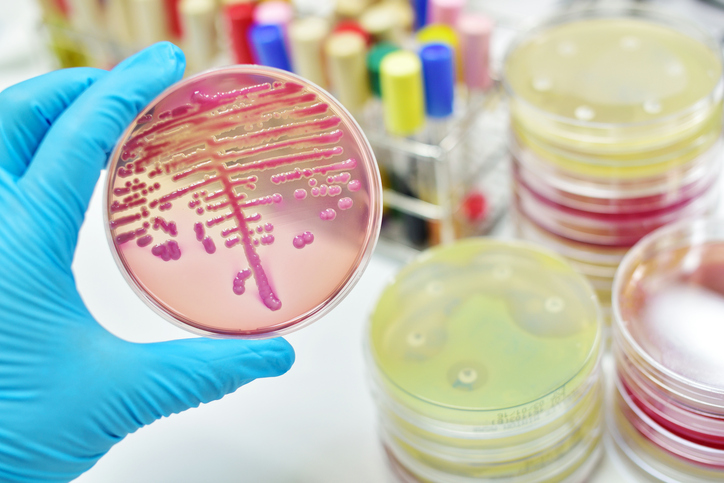June 26-30, 2017 – University of Illinois at Chicago
 The University of Illinois at Chicago (UIC) presents Next Generation Electrochemistry (NGenE), a one week, student-centered, summer intensive workshop that explores the frontiers of electrochemical research. The program brings together approximately 25 graduate students with demonstrated interest and research experience in the field of electrochemistry, for an immersion experience with 10 renowned electrochemists from across North America. Admission to NGenE is competitive. There is no program fee for participation, and travel and lodging support is available to everyone participating in the program.
The University of Illinois at Chicago (UIC) presents Next Generation Electrochemistry (NGenE), a one week, student-centered, summer intensive workshop that explores the frontiers of electrochemical research. The program brings together approximately 25 graduate students with demonstrated interest and research experience in the field of electrochemistry, for an immersion experience with 10 renowned electrochemists from across North America. Admission to NGenE is competitive. There is no program fee for participation, and travel and lodging support is available to everyone participating in the program.
The program’s primary objective is to introduce advanced students in electrochemistry to research at the frontiers of the field, with an emphasis on the identification of the critical gaps in our understanding of electrochemistry, and develop innovative strategies to address those gaps through collaboration and critical thinking. To achieve these objectives, the faculty will explore these topics through lectures on cutting-edge research, complemented with a site visit at Argonne National Laboratory. The students will carry out collaborative research projects during the week, where they will be challenged to develop innovative research methods under the guidance of faculty mentors.


 The ECS Physical and Analytical Electrochemistry Division is currently accepting nominations for the prestigious Max Bredig Award in Molten Salt and Ionic Liquid Chemistry that will be recognized at the fall 2018 biannual meeting in Cancun, Mexico:
The ECS Physical and Analytical Electrochemistry Division is currently accepting nominations for the prestigious Max Bredig Award in Molten Salt and Ionic Liquid Chemistry that will be recognized at the fall 2018 biannual meeting in Cancun, Mexico: While not the only source of science, government funded research plays a huge role in the lives of many individuals. From something as simple as the weather apps underpinned by the National Weather Service to the Food and Drug Administration’s work on
While not the only source of science, government funded research plays a huge role in the lives of many individuals. From something as simple as the weather apps underpinned by the National Weather Service to the Food and Drug Administration’s work on  As the demand for newer, faster electronics rises, so does the amount of e-waste across the globe.
As the demand for newer, faster electronics rises, so does the amount of e-waste across the globe. Walk into your typical U.S. or U.K. grocery store and feast your eyes on an amazing bounty of fresh and processed foods. In most industrialized countries, it’s hard to imagine that food production is one of the greatest challenges we will face in the coming decades.
Walk into your typical U.S. or U.K. grocery store and feast your eyes on an amazing bounty of fresh and processed foods. In most industrialized countries, it’s hard to imagine that food production is one of the greatest challenges we will face in the coming decades. A recent report published by the National Oceanic and Atmospheric Administration (NOAA) states that the
A recent report published by the National Oceanic and Atmospheric Administration (NOAA) states that the  With the
With the  Microelectronics has transformed our lives. Cellphones, earbuds, pacemakers, defibrillators – all these and more rely on microelectronics’ very small electronic designs and components. Microelectronics has changed the way we collect, process and transmit information.
Microelectronics has transformed our lives. Cellphones, earbuds, pacemakers, defibrillators – all these and more rely on microelectronics’ very small electronic designs and components. Microelectronics has changed the way we collect, process and transmit information. New research led by ECS Fellow
New research led by ECS Fellow